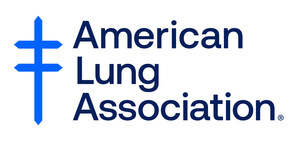
American Lung Association Provides Guidance on Lung Cancer Screening
WASHINGTON, April 23, 2012 /PRNewswire-USNewswire/ -- The American Lung Association announced today that it has released new interim guidelines to assist physicians, their patients and the public in their discussions about lung cancer screening. Lung cancer is the leading cause of cancer death for both men and women in the United States; having a five-year survival rate of only 15 percent. Recent research from the National Cancer Institute National Lung Cancer Screening Trial (NLST) found that low-dose computed tomography (CT) is a promising clinical strategy for the detection of pre-symptomatic lung cancer in individuals at the highest risk for lung cancer, reducing deaths by 20 percent compared to chest X-ray.
Developed by the American Lung Association's Lung Cancer Screening Committee chaired by Jonathan Samet, M.D., M.S., from the University of Southern California, the report reviews current scientific evidence on lung cancer screening and provides important guidance to physicians and the at-risk public about getting screened for lung cancer. The NLST findings have already led to widespread use of CT for lung cancer screening and the committee developed recommendations to facilitate decision-making, particularly for those with chronic lung diseases including COPD, while research on CT screening continues. The report provides guidance that will be valuable for making a decision on screening.
Based on the NLST findings, the Lung Association recommends lung cancer screening with low-dose CT scans for people who meet the criteria, which include the following: current or former smokers (aged 55 to 74 years), with a smoking history of at least 30 pack-years (that is, an average of a pack a day for 30 years) and with no history of lung cancer. The Lung Association emphasizes that only CT scans are recommended and that chest X-rays should not be used for lung cancer screening.
The Lung Association recognizes that while low dose CT scans may save lives, screening for lung cancer should not be recommended for everyone as many known and unknown risks may be associated with the screening and subsequent medical evaluation.
"Never starting smoking and quitting smoking still remains the best way to prevent lung cancer," stated Norman H. Edelman, M.D., chief medical officer of the American Lung Association. "Additionally, it is also important for people to have their homes tested for radon, as radon exposure can increase the risk of lung cancer."
Other recommendations made in its report include referring patients to facilities that have experience in conducting low dose CT scans and which employ multidisciplinary teams that can provide comprehensive follow-up. The Lung Association also implores hospitals and screening centers to establish ethical policies for advertising and promoting lung cancer CT screening services.
According to Albert Rizzo, M.D., Board Chair for the American Lung Association: "Our hope is that this report will guide the public on this very important personal and public health issue. We believe that the report and the educational materials that will stem from it will be invaluable to the tens of millions at risk for lung cancer."
The American Lung Association is pleased to endorse this clinical prevention strategy that can save many lives. The Lung Association will continue to fight to reduce tobacco exposure, fight for clean air, and fight to find cures for lung disease such as lung cancer.
The full American Lung Association Interim Report on Lung Cancer Screening and related educational materials are available at http://www.lung.org/lung-disease/lung-cancer/lung-cancer-screening-guidelines/.
About the American Lung Association
Now in its second century, the American Lung Association is the leading organization working to save lives by improving lung health and preventing lung disease. With your generous support, the American Lung Association is "Fighting for Air" through research, education and advocacy. For more information about the American Lung Association, a Charity Navigator Four Star Charity and holder of the Better Business Bureau Wise Giving Guide Seal, or to support the work it does, call 1-800-LUNG-USA (1-800-586-4872) or visit www.Lung.org.
SOURCE American Lung Association






Share this article